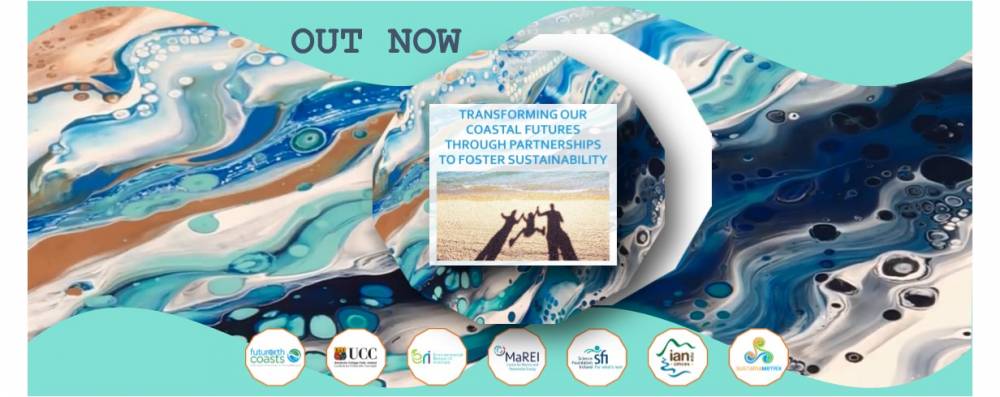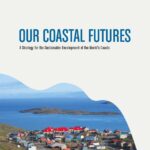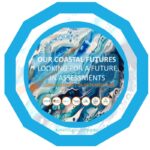A strategy to promote knowledge exchange.
by Hester Whyte (MaREI/UCC)
In March 2018 Future Earth Coasts community met with representatives of UN Environment and the Western Indian Ocean, the Baltic Sea, Mediterranean regional seas to work together with Science Communicators from IAN (the Integration and Application Network) and SustainaMetrix to develop a strategy for knowledge exchange that could lead to more effective adaptive management and governance for our coasts through assessing existing strategies.
The format of the workshop was to co-design and co-produce an output that could be used to further stimulate collaboration and joined-up thinking. The workshop held in University College Cork over three days set out to get a clear picture of existing strategies across the different regional seas and where the linkages, similarities and differences lie.
This has resulted in the publication of a document outlining the vision and way forward for partnering towards a more sustainable future for the world’s coasts. In order to effectively work towards this it was important to not only bring the different governing bodies to the table but also to ensue discussion was aligned with the existing strategies and plans.

This 6 page output is the result of a three day workshop between representatives of the regional seas and UN Environment with Future Earth Coasts researchers held in Cork, Ireland in March 2018.
Different angles, different backgrounds and different perspectives…try bringing that together!
As part of the workshop the “OUR COASTAL FUTURES” strategy, that aims to promote action towards the sustainable development of the world’s coasts, was used as a foundation to further support regional organisations. The main aim of the “OUR COASTAL FUTURES” strategy is to help stakeholders work together to unlock regionally appropriate opportunities for the sustainable development of our shared coastal zones. You can read more about how the strategy was developed and download the document here.
FEC SSC co-Chair Bruce Glavovic explained the history and development of #OurCoastalFutures followed by vice-Chair Don Forbes providing an example of the process of assessment to action though his experience with the Arctic State of the coasts initiative and SmartICE.
The workshop then continued by taking stock of what kind of assessments are already happening in the different regional seas starting with UN Environment’s representatives Helen Davies outlining how the Regional Seas programme is supported by 143 countries, covering Polar, Africa, Latin America & Caribbean, Asia Pacific & South East Asia and also looking how they can better support the UN Global Sustainable Development Goals support and Joana Akrofi explaining the history of the Regular Process – the cycles of the World Ocean Assessment. See also:United Nations World Ocean Assessment
Kari Hyytianinen gave insight into the Baltic BONUS programme and how they are exploring consequences of alternative global futures followed by an overview by Helcom representative Soile Oinonen on the how and why of the state of the Baltic Sea Holistic Assessment development.
The history and development of Plan Bleu’s assessment on futures & state of the environment in the Mediterranean was outlined by UN PAP/RAC’s Elen LeMaitre-Curri. And details on the regional state of the coast report for the Western Indian Ocean was provided by WIOMSA’s Julius Frances.
“We want simple but we have complexity & chaos” Glenn Page (Sustainametrix)
After having heard from the different regional seas and their approach to assessments Bill Dennison and Heath Kelsey from the Integration and Application network of the University of Maryland looked at the commonalities and differences through a number of group exercises together with co-facilitator Glenn Page from SustainaMetrix, and determined how to sequence and prioritise actions. The workshop output was drafted during the workshop and a final version was created after a period of reviewing and editing and the result can be downloaded HERE.
You can read more about the workshop in this blog post by Heath Kelsey from the Integration and Application network, University of Maryland.




